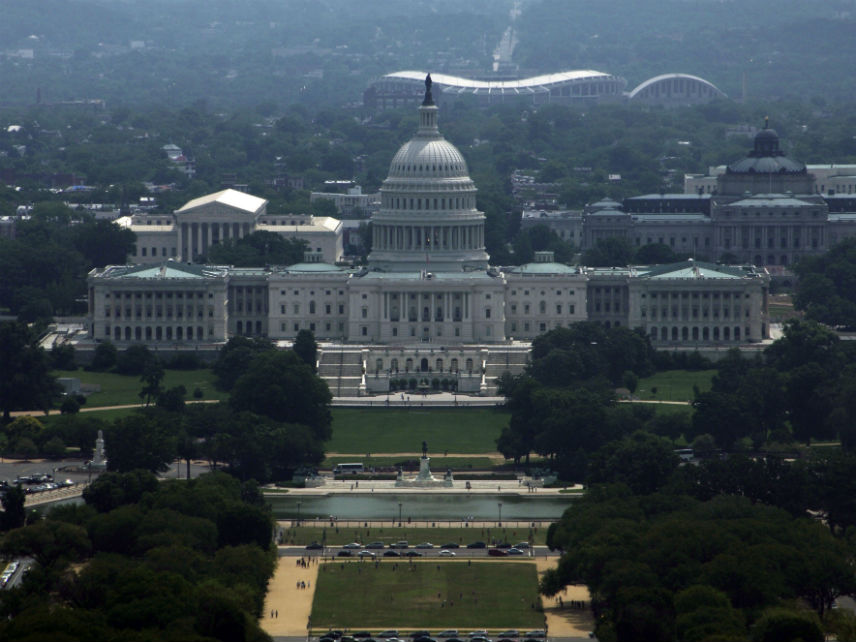House Passes Bill to Reclassify Dozens of Offenses as 'Crimes of Violence'
Opponents say the bill, rushed to the floor without a hearing, would dangerously expand what's considered an "aggravated offense."

Republicans in the House passed a bill this morning that would reclassify dozens of federal crimes as "crimes of violence," making them deportable offenses under immigration law. Criminal justice advocacy groups say the bill, rushed to the floor without a single hearing, is unnecessary, is overbroad, and will intensify the problem of overcriminalization.
The Community Safety and Security Act of 2018, H.R. 6691, passed the House by a largely party-line vote of 247–152. Among the crimes that it would make violent offenses are burglary, fleeing, and coercion through fraud.
"Groups on the right and the left are deeply concerned about the bad policy in this bill and the unfair process through which it came to the floor," Holly Harris, the executive director of the U.S. Justice Action Network, said in a statement to Reason. "At a time when we have bipartisan support for criminal justice reforms that will safely reduce incarceration and better prioritize public safety, passing a bill that does just the opposite makes no sense at all."
In April, the Supreme Court ruled in Sessions v. Dimaya that the definition of a "crime of violence" used for federal immigration law—conviction under which can lead to deportation proceedings—was unconstitutionally vague. House Republicans crafted the bill, they say, in response to the Supreme Court's recommendations in that case. But the criminal justice reform advocacy group FAMM warned that the bill "would label seemingly nonviolent offenses such as burglary of an unoccupied home and fleeing as violent offenses."
"The bill would also label as violent conspiracy to commit any of the listed offenses, even when no violent acts have occurred," the group notes in a press release.
The bill was also opposed by the House Liberty Caucus, which released a statement saying that the legislation "expands unconstitutional federal crimes and provides grossly disproportionate consequences for nonviolent offenses."
"Its effect is to widen the range of conduct prohibited by those unconstitutional laws, further undermining our system of federalism and eroding the Founders' design for a very limited federal criminal justice system," the statement continues.
Rep. Karen Handel (R-Ga.) claims the bill is urgently needed to keep, as its name suggests, communities safe from violent crime.
"We don't have the privilege to squabble over hypotheticals that have no bearing on the application of this law," Handel said on the House floor. "I can assure my colleagues this bill is not overly broad. It's not a dangerous overexpansion. Instead, it's a carefully crafted response to the Supreme Court's recommendations."
Democrats and criminal justice groups also objected to the speed at which the bill sailed to the House floor. It was introduced just a week ago and did not have a single hearing or markup prior to today's vote. The House Liberty Caucus calls the process "farcical."
In a tweet, Jason Pye, the vice president of legislative affairs at the libertarian-leaning group FreedomWorks, writes: "In my view, this bill is mostly politics. I agree that Dimaya requires a fix, but this bill has flaws that could have, and should have, been worked out in committee markup. It's shameful that this bill was handled this way."


Show Comments (106)